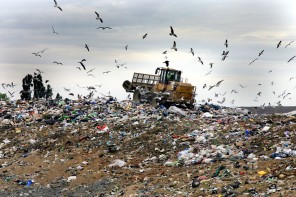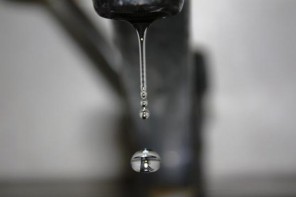When you think about grabbing a coffee before work, you might worry about the disposable cup ending up in the trash and landfill. And you should. Even paper coffee cups are lined with polyethylene, a film of plastic that makes them difficult to get recycled. But maybe you could have your coffee without the need for a cup. At least if you’re in Melrose Arch, Johannesburg, that is.
Waffle Cone With Your Coffee?
The Grind coffee company has come up with a really sweet way to prevent your morning coffee from being served in a plastic or paper cup. The coffee arrives in a chocolate-lined waffle cone! Yummy!
How it Came About
The idea for the coffee cones was developed with the help of Simone Man of World’s Best Brittle, a company that creates delicious artisan peanut brittle, and are now made by chef Jill Okkers. The cones are coated with dark-chocolate compounds to prevent the coffee from spilling out of them. Then the coffee – either a macchiato or espresso – is poured into the cones. The bonus of the coffee is that you get a waffle cone for breakfast and don’t have to look for a bin on your way to work. The downside? Be prepared to drink your coffee really fast before it starts to melt the cone, but think of it as warm, delicious ice cream!
Wake Up and Smell the Chemicals
Disposable paper or plastic coffee cups wreak havoc on the environment, so The Grind’s idea is stellar and hopefully other coffee companies will follow its example. Styrofoam is especially problematic. These will never decay and decompose in landfills because they are packed with chemicals. They’re unsafe for you too: the chemicals leak out of the plastic and into your hot morning brew, sure to leave a bitter taste in your mouth.











